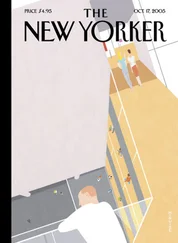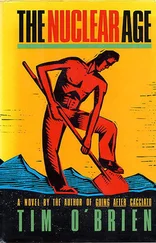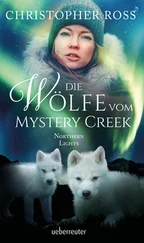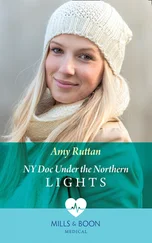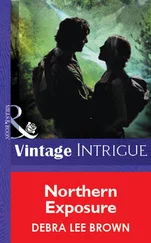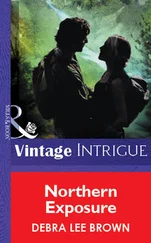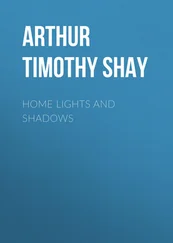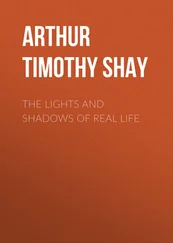1 ...8 9 10 12 13 14 ...18 ‘You must learn to dance,’ she said. ‘A great picker-upper. All my friends have to dance.’ Addie moved beside him. ‘Here, I’ll show you how. You can’t be watching all the time, come on. I’ll show you a tricky polka.’
He put his glasses on the table. It was a long, exhausting dance. He was out of shape. Over her shoulder, he saw Harvey watching.
Afterwards he went outside to pee. It was a ritual that the men peed outside and the women peed in the women’s room. He breathed some fresh air.
Inside again, Harvey and Addie were dancing. The Hamms beer sign was revolving. She was bright and fun and she danced on her heels. He got a beer and watched Harvey and Addie and Bishop Markham and the others.
Jud Harmor came in, took a stool at the end of the bar, refused a beer, and pulled his straw hat down. People gave him lots of room.
Harvey held Addie, whooping on the dance floor, and the old timbers were rocking.
When the dance ended, the young waitress took Harvey back to the floor.
Addie was wet and smiling.
‘He’s a real pirate,’ she said. ‘He can dance.’
‘I was watching.’
She touched his arm. ‘Peeping Paul.’
‘Yeah. Ol’ peeping Paul peeped a peck of pickled trouble.’
‘So clever.’
‘Would you like a beer?’
‘Here, let’s us sit down,’ she said.
They took a corner booth. Addie watched Harvey and the beehived waitress dance. ‘He is a fine dancer,’ she said.
‘Sure.’
‘Tell me about your brother the pirate.’
‘There’s nothing to tell. He’s a nice guy. Everybody says that. He’s a rascal and a scamp.’
‘A pirate!’
‘I guess so.’
Addie was barefoot. She put her sandals on the table.
‘There’s nothing like a pirate to brighten things up. Why isn’t Grace here? You should have brought Grace. Then we would have been a group, and groups are always more fun. What happened to his eye?’
‘He was wounded.’
‘Well, I know that. How did it happen?’
Perry shrugged. He had a tight fever. ‘The telegrams just said he’d been wounded, I don’t know. He’s all right now. He hasn’t said anything about it.’
‘That’s silly. I’ll drag it out of him then. I’m good at that. I’ll drag out the whole gruesome story and make him feel all better about it.’
‘You’re the one to do it, Addie.’
‘Want to dance with me?’
‘Not that. Not now, I’m pretty tipsy.’
‘Such a pirate.’
‘Yeah.’
‘Let’s dance. That’ll make it better.’ She got up and held his arm.
‘Don’t be so happy.’
‘I’m sorry.’
‘Everything gets better, you know.’
‘Let’s dance then.’
‘I’ll dance barefoot.’
‘Spectacular, Addie.’
‘Hmmm.’ She removed his glasses. ‘There, how’s that?’ Very slowly, she pulled him up. ‘Very tribal, don’t you think? Firewater and campfires and wild rhubarb, all erotic.’
‘Stop that.’
‘Don’t be silly. You should be barefoot, too.’
She was lean and athletic.
‘Isn’t this a nice song? Very erotic, isn’t it? Don’t step on my bare feet.’
‘Jesus.’
‘Isn’t this better now?’
‘It’s fine. I’m pretty hot.’
‘Dance closer. You don’t have to be so stiff. That’s better. See how? One, two, three. One, two, three. Isn’t it nice? Think of campfires and firewater.’
The accordion music was slow and swaying, deep forest. People were singing.
‘Don’t you like me?’
‘Yes,’ he said.
‘And isn’t it nice to dance a little?’
He saw Jud Harmor watching. Jud smirked, raised his hat.
It was a long slow dance.
‘We should all go for a swim. Is that your brother’s girl friend?’
‘Are you looking at them? I thought you were dreaming with your eyes closed.’
She laughed. ‘I was dreaming. Is that his gift friend?’
‘Her name is Linda or Lorna or something. She’s a patient of his.’
‘We should all go swimming.’
She was light and the skin was tight across her shoulders.
‘We really should go for a swim now,’ Addie said. ‘Wouldn’t that be good?’
‘I have to go home.’
‘Yes,’ she said. ‘There’s always that, isn’t there?’
In town, the dry spell was all they talked about. The air was crisp and inchworms were eating up the forest. At night, trying to sleep, Perry heard them munching with the sound of rainfall. But it did not rain. The days were hot and dry, and it did not rain.
It kept him busy. Meagre to begin with, the corn crops were baked away. One by one, the farmers slipped into the office, shamed, filled put their loss statements and applied for loans. On the highway into town, the hands of the fire danger clock pointed to high noon. Forest Service firefighters checked into the U-Rest Motel, arriving in green trucks and jeeps. The town turned out to watch them arrive. People were excited. In the drugstore, they swapped stories about earlier fires. It was suspenseful and important. Heat killed the mosquitoes. It killed the grass on Perry’s lawn. A dog dropped dead on the church steps. Everyone talked about it: the town was built of timber, white pine that had been cut and sawed and planed and notched and moulded, hammered together and lifted up and painted bright. The paint was peeling. The forest crept up to the town and into the parks and on to the lawns and kept going, and if the forest burned, then the town burned, too. There was no distinguishing it.
Perry watched the excited faces through his office window. The twelve-man fire brigade was put on alert.
‘You gotta sign up,’ Wolff insisted. ‘Your ass burns with the rest of us, you know.’
‘Not me, Herb. I’ll watch it from the window.’
‘Harvey joined up.’
‘Harvey’s good for that.’
‘Geez,’ Wolff prodded, ‘you don’t join anything around here. You ought to show a little more citizenship.’
In late July a Forest Service agent stopped at the office. The skin was black and flaky in the hollows of his face. He wore a silver badge. He was solemn. He told Perry they were moving in another crew of firefighters. ‘Doesn’t look good,’ he said. ‘One spark, that’s all it’d take. I’m not kidding.’ He told Perry they worked for the same boss – ‘Good old Uncle Sam, the USDA. We’re going to have to use your office for a headquarters, just till this thing blows over.’
Perry turned over the keys. He left quickly. He celebrated with a beer, drove home and went to bed.
Grace worked hard on the garden, watering the soil, protecting the tomatoes and green beans, fed them fertilizer, cooed to them. And she taught Sunday school.
Harvey prepared in other ways. He cleaned out the bomb shelter, throwing away all the rakes and hunks of hose and old furniture Perry had stored there. He swept the shelter down, hosed it out, repaired the air filter, filled the water tank, put in a new store of sheets and blankets and pillows.
That July was hot. There was small-town suspense.
Perry stayed away from the bomb shelter. He didn’t say so to Harvey, but he thought the place dark and depressing and buried away.
‘The old man wasn’t so crazy after all,’ Harvey kept saying.
‘Right,’ Perry said.
‘You don’t have to be so damn arrogant about it.’
‘I’m not.’
‘He wasn’t dumb or crazy. You don’t have to smirk.’
‘I’m not smirking, Harv. It’s a solid bomb shelter.’
The floor was laid in massive tumulary stones. The air was musty. Tepid air, a mouldering preservation. The past and extended future. A stack of magazines lay in one corner. There were books and games, a typewriter, liquor and candies and soap. Boxes of canned food were stacked to the ceiling. There were cots and flashlights and folding chairs, candles and rope and wire, tools and cigarettes and matches, foul air, electric lights connected to a small generator, string and blankets, paper and silverware and pots and plates and survival gear.
Читать дальше

